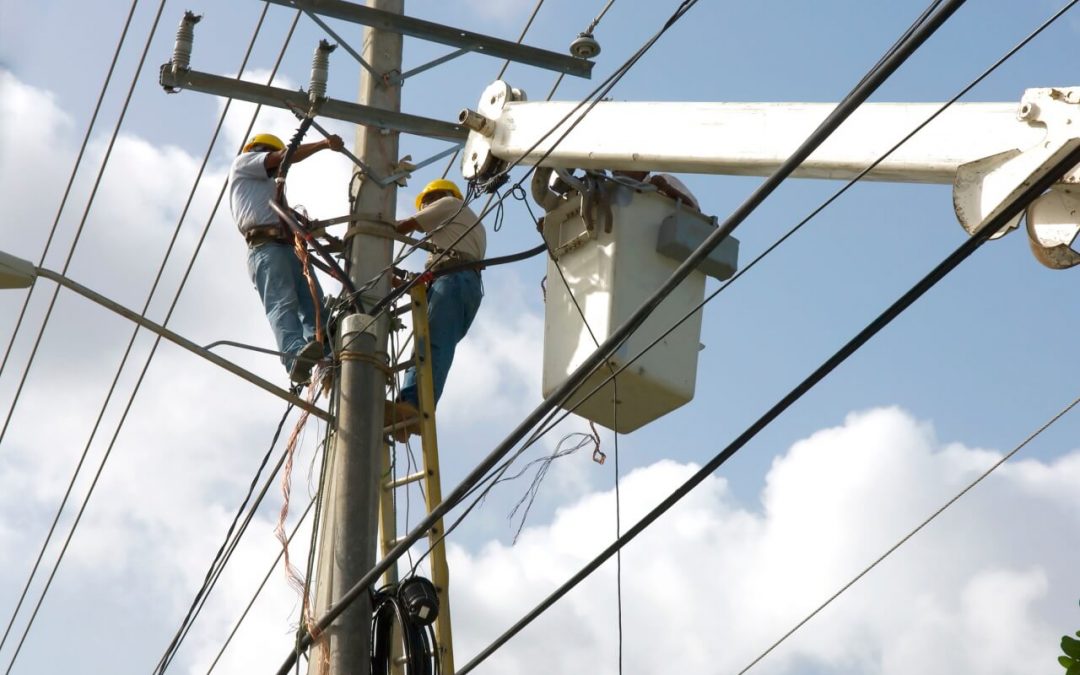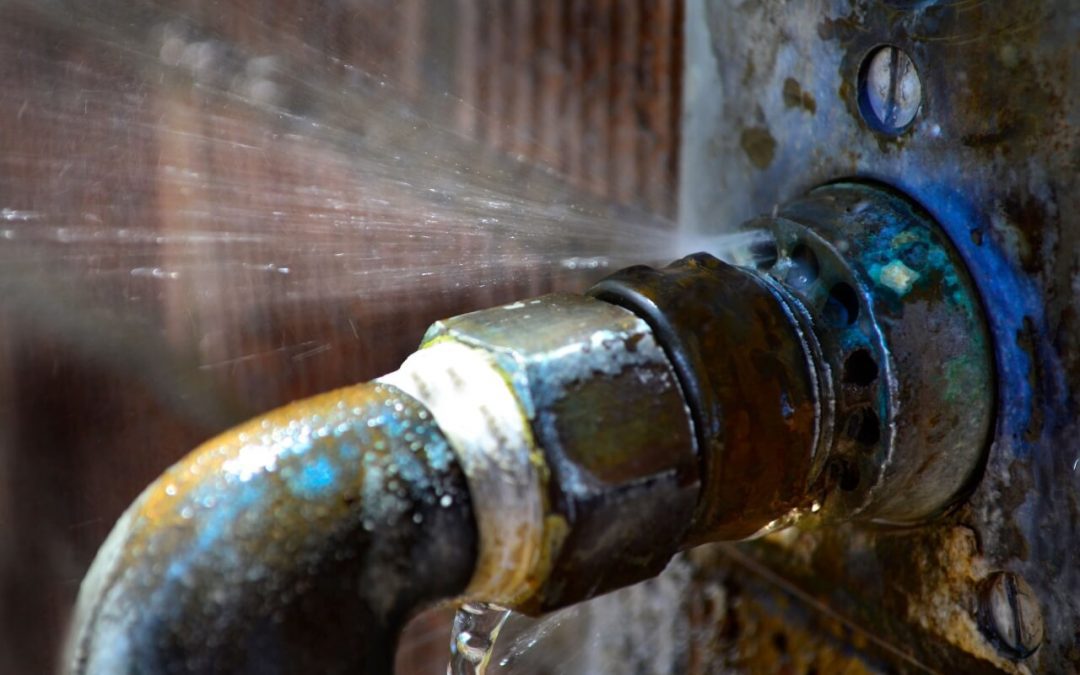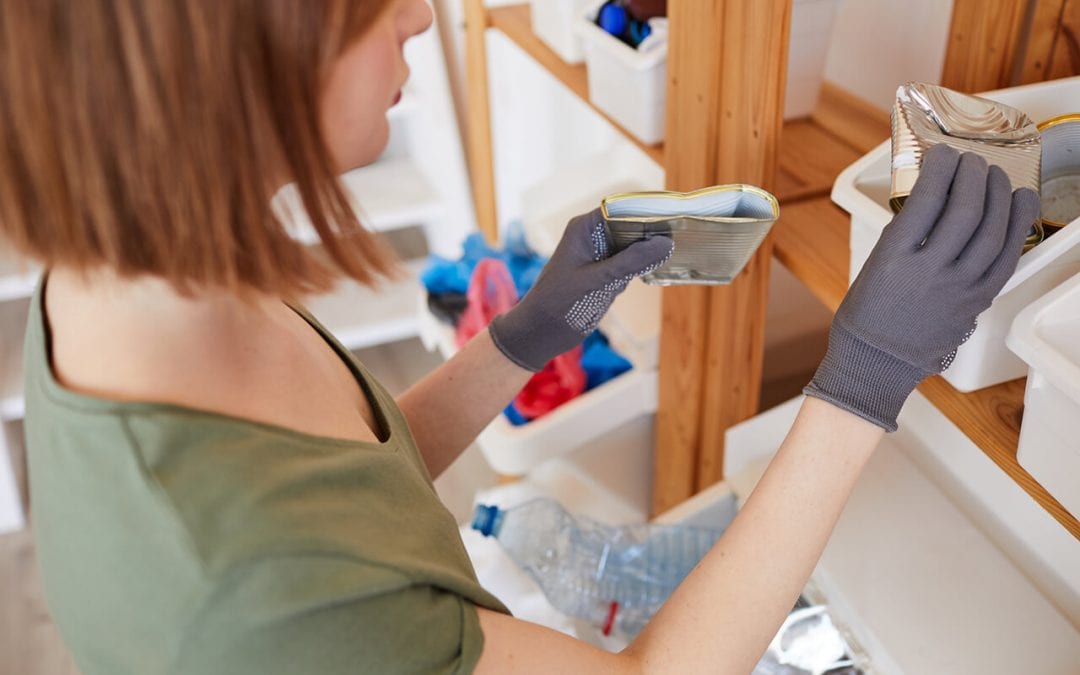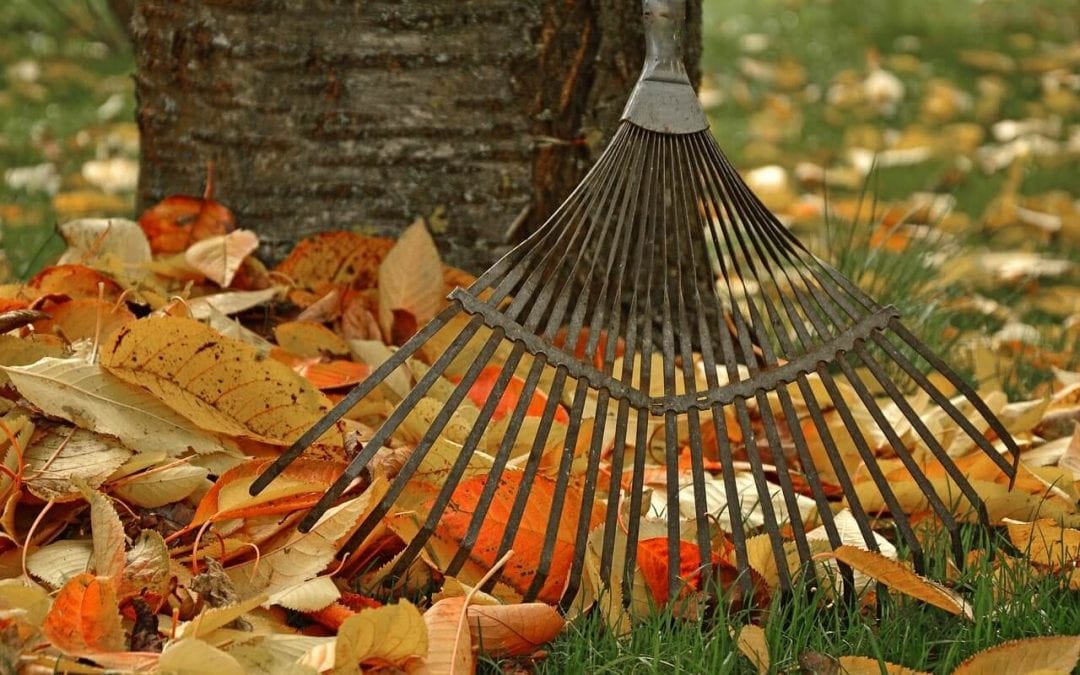
by mwonfor | Nov 11, 2021 | Community, Home Maintenance, Safe and Healthy Home
Every homeowner should be prepared for a power outage. While most outages are usually resolved in a short time, some last hours or even days. In the event of a major storm or accident, power to your home may be interrupted for quite some time. Here are a few tips to help you prepare for a power outage.
Six Things to Do to Prepare for a Power Outage
Assemble an Emergency Kit
If you lose electricity, the last thing you want is to fumble around searching for supplies. Assemble a power outage emergency kit and store it in an easy-to-access location. Some of the items to include are listed below. Inspect your kit frequently and update it as needed.
- Flashlights (one for each person in your household)
- First aid kit
- Necessary medications
- Batteries
- Whistle (to call for help in case of an emergency)
- Battery-powered radio
- Cell phone chargers
Store Plenty of Water to Prepare for a Power Outage
While water shortages are uncommon, they can happen if the power goes out for an extended period over a widespread area. On average, you’ll need one gallon of water per person per day. As a rule of thumb, store enough drinking water to last at least 72 hours. You’ll also want to put aside some water for cleaning and personal hygiene.
Stock Up on Non-Perishable Food
When there’s a prolonged power outage, shoppers may empty store shelves quickly. When you’re prepared, you won’t be stressed about finding essential supplies. Stock your pantry with non-perishable foods. Some excellent products to stow away include:
- Crackers
- Nuts
- Powdered milk
- Canned fish
- Cereal
- Granola bars
- Dried fruit
- Canned soups and vegetables
- Instant coffee and tea
When shopping for non-perishable foods, check their expiration dates. You will be storing them for several months, so it’s best if they’re far from expiring. If you purchase canned goods, make sure to include a can opener in your emergency kit.
Plan for Alternative Lighting
Good lighting is essential for safety and comfort. Be ready for a power outage by keeping alternate light sources on hand. You can purchase items like solar lanterns, LED flashlights, and candles. If you opt for the latter, keep matches or lighters nearby. To stay safe, don’t forget to extinguish candles before going to bed or leaving the house.
Purchase a Generator to Prepare for a Power Outage
A backup power source is an excellent way to prepare for a power outage. Purchase a small indoor generator to power items like your cell phone, computer, tablet, or a few lamps. These are lightweight, easy to carry around, and relatively quiet. However, these must be charged overnight before use and they aren’t very powerful.
On the other hand, gas-powered generators don’t have these drawbacks. They use gasoline or propane and can power many of the appliances in your home. However, this type of generator is bulkier and noisier and must be used outdoors.
Plan to Stay Occupied
Power outages can feel like an eternity and may increase the anxiety of some of your family members. Reduce stress by engaging in fun activities. Along with emergency supplies, be prepared with board games, puzzles, books, and magazines to keep everyone occupied. Activities help reduce anxiety and make the time pass more quickly.
Whether you live in a region prone to power outages or not, it’s essential to be prepared. Plan for a power outage by following the tips above to make the blackout more bearable.
American Home Inspection Services provides inspections to customers in Southeastern Michigan. Contact us to request our services.

by mwonfor | Aug 12, 2021 | Community, Home Maintenance, Homeowners
Owning a home involves upkeep and responsibilities, and it can sometimes be challenging to prioritize tasks and chores around the house. Here are a few common concerns of homeowners and what you can do about them to keep your property and family safe.
Home Security
No one wants to face the stress and uncertainly that occurs with a break-in. To minimize the risk of a burglary, make sure your alarm system is functioning correctly. If you haven’t yet installed a security system, begin shopping for options. There are many systems available that can be monitored from your smartphone.
To help prevent theft, look around your property for potential hiding places for an intruder. Make sure the yard is well-lit at night. Install motion-sensing lights above the garage and in the side yard. Keep bushes around the home trimmed so a burglar won’t be able to hide there. Check window and door locks to make sure they’re all functioning properly and don’t forget to lock up every time you leave the house.
Plumbing Leaks are Common Concerns of Homeowners
Plumbing issues can cause water damage and structural concerns. Prevent serious plumbing problems with regular maintenance. Keep a close eye on your water pressure. Homeowners may prefer higher water pressure for showers and other household chores, but when it’s set too high, it strains the pipes and may eventually lead to cracks and leaks. If you are planning to leave town, turn off the water at the main shut-off valve. This will prevent plumbing emergencies while you are away.
Roof Replacement
The roof is a critical component that protects your family, home, and belongings. Roof replacement is a major project, so it’s important to take care of your roofing and help extend its lifespan.
Extreme weather like severe storms and heavy snow can damage your roofing. To minimize this risk, make sure your gutters remain clear. Blockages prevent water from draining away from your home and may cause water to seep under the roofing materials.
Look outside for missing, cracked, or warped shingles and replace them as necessary. If you notice leaks or dark stains on walls and ceilings, hire a professional to inspect the roofing. Repairs may be necessary or it could be time for a full roof replacement.
Electrical Safety
Electrical problems can lead to injuries and even a house fire. Water and electricity don’t mix so make sure your hands are dry before plugging an appliance into the wall. Keep devices away from water sources. This is even true of outdoor appliances and landscaping equipment. If you use an electric leafblower or weedwhacker, don’t use it in the rain and store the tool indoors. Exposure to moisture will shorten the lifespan of many tools and appliances.
Make sure all lamps and light fixtures are fitted with bulbs of the correct wattage to reduce the risk of overheating. Unplug electronics and appliances when not in use to avoid short-circuiting in case of a power surge.
American Home Inspection Services offers home inspections in Southeast Michigan. Contact us to request an appointment.

by mwonfor | Feb 15, 2021 | Community, Home Maintenance, Homeowners
A cluttered home causes stress and chaos. One of the best projects you can take on to help your home’s aesthetic and functionality is decluttering the home. Break this task down into four steps to make it more manageable.
Choose Where to Start When Decluttering the Home
You can’t expect yourself to declutter the whole house in one day. This unrealistic goal will only overwhelm and frustrate you. Focus on one area at a time. Choose a room and then hone in on a section of the room. Dive right into the most cluttered areas. At the beginning of the project, you’ll have more energy annd motivation by completing the worst parts first.
Empty the Area
Clear out the area first. When you have a blank slate, it’s less tempting to keep using a storage system that simply wasn’t working. Emptying the space also gives you a chance to deep clean an area that doesn’t get cleaned very often. Clean the walls, shelves, and floor before continuing with your project.
Sort Items
At this stage of the process, you have an empty space with all the items removed and collected on the floor, table, or bed. Sort the items into categories that you’ll either be keeping or getting rid of.
For items that you are keeping, separate them according to whether they belong in this space or somewhere else in the home. For discards, decide if they are trash or worth donating. Take the trash out right away and place donation bins in the car so they won’t end up redistributed back into your house.
Reorganization After Decluttering the Home
Now you are left with useful items that you’ve decided to keep. Find a new way to organize them that makes sense. Things that are used daily, like your favorite coat, should be kept within easy reach. Items used less frequently, like fancy dress shoes, can be tucked away to free up premium space. Keep less-used items on a high shelf or in the back of the closet because you might only wear them a few times a year.
American Home Inspection Services provides home inspections and related services to Southeast Michigan. Contact us to request an appointment.

by mwonfor | Jan 18, 2021 | Community, Home Maintenance, Homeowners, Mold Inspection
When you are busy, it can be tempting to ignore seemingly minor problems in the home. However, some small signs lead to big problems in a house. Here are 5 serious home issues that may not seem concerning at first, but that should be addressed immediately.
Slanted Floors are Serious Home Issues
Sometimes it is apparent that floors are uneven just by walking across them, and in other homes, it is less obvious. Slanted floors may not bother you, but they can point to serious structural problems that should be addressed for safety’s sake. It may mean that the structural beams underneath the flooring have been damaged by termites, rot, or water.
Doors That Stick
While doors that are difficult to open to close are annoying, they may not seem like a significant issue. However, this could point to the foundation sinking or a settling problem that’s causing misalignment with the door and its frame. Foundation issues should not be ignored; the longer you wait, the worse they will get.
Strange Smells can Point to Serious Home Issues
Any type of odd smell in your home should be investigated. Whether it is a musty smell of wet socks, sewer gas odor, or a fishy scent, it could be the sign of a serious problem that threatens the health and safety of your family. A mold problem, broken vent stack, or overheating circuit may be the cause of these smells.
Water Pooling by the Foundation
Drainage issues lead to serious problems like mold and foundation settling. Water pooling by the foundation may be a result of poor grading or clogged gutters. The fix might be as easy as cleaning out the gutters so that water can be properly channeled away from the home. If water is pooling around the base of the home, check the crawlspace or basement for moisture.
Mud Tubes
Any signs of termites should be taken seriously. Mud tubes on the exterior of the house are one of the most visible signs of termites. They are about the width of a pencil and run along the foundation and siding. Termites build them for a safe passageway to travel into the house. Other signs to look for are piles of termite droppings and discarded wings. Schedule a termite inspection if you see any of these signs.
American Home Inspection Services serves Southeastern Michigan with home inspection services. Contact us to schedule an appointment.

by mwonfor | Dec 16, 2020 | Community, Home Maintenance, Homeowners, Seasonal
Winter is the season that comes with the highest utility bills for many households. Many homeowners don’t know about the small adjustments they can make to help heat the home efficiently. Here are 5 easy tricks that can save you some money.
Heat the Home Efficiently by Programming the Thermostat
You may be surprised how much money you can save by simply setting a schedule on your programmable thermostat. If the members of your household have a routine day-to-day schedule, it is best to set up the thermostat in advance.
If everyone leaves the house by 9 in the morning, program the thermostat to lower a few degrees at that time. There is no reason to keep the house at a warm and toasty temperature when no one is home. Program the thermostat to raise the temperature back up to its normal level about 30 minutes before people start arriving at home.
Fully Seal the Home
When a house is not well-sealed, the heating system has to work much harder to keep the home warm. Doors and windows are the most common areas for cold drafts to come in, so focus on sealing these areas first. Old windows become loose over time and may crack around the panes. Use caulk to seal up any openings. Exterior doors may have gaps around the edges. Apply weatherstripping around the door and a door sweep at the bottom to help reduce drafts.
Make Sure the House is Well-Insulated
A poorly insulated house cannot be heated efficiently. Since most of the insulation in a home isn’t accessible, hire a professional to inspect the insulation if you are having trouble lowering your heating bills and keeping your home warm. Damaged insulation may need to be removed and replaced or you may just need to add more insulation.
Heating System Maintenance
A poorly maintained heating system expends more energy to heat the home than one that is annually serviced. Problems like dirty components, malfunctioning parts, and a clogged filter put a strain on the system. Hire an HVAC professional to service your heater once per year, and then keep up with replacing your filters monthly or as directed by the manufacturer.
Use the Sun to Heat the Home Efficiently
The warmth from the sun is a free resource you can use on sunny days in the winter. Open the drapes on south-facing windows to heat up the room. Then, at night, close the drapes to keep the heat in and the cold air out. Outfit all the windows in the home with heavy drapes to help insulate them.
American Home Inspection Services provides home inspections and related services to Southeast Michigan. Contact us to request an appointment.

by mwonfor | Oct 16, 2020 | Community, Home Maintenance, Homeowners
Simple Steps to Care for Your Landscaping in Fall
The spring and summer months are not the only times of year to care for your yard. It’s easy to maintain your landscaping in fall and keep your yard looking great even after the green foliage of summer is gone.
Prepare Your Fall Garden
When preparing your home for fall, consider adding a fall garden space. Between late summer and early fall, remove annual flowers planted during the summer and pull out weeds and other unwanted plants.
Once you have tidied up your garden space, you can begin planting for fall. Choose flowers, shrubs, and trees that will perform through the season. Mums, marigolds, and flowering kale are great fall choices.
Care for Your Lawn When Landscaping in Fall
During the fall season, care for your lawn to protect it from the cooler weather and get it ready for next summer. Continue mowing the grass as needed until the first frost. You may notice your grass growing slower than in the summer months, but you can still mow and water it.
Also, apply fertilizer in the fall to keep your lawn healthy. The fertilizer will help your grass grow stronger roots before winter. Fall is also the perfect time to aerate and seed bare patches in your lawn.
Plan a Spring Garden
Fall is a great time of year to plan out your spring garden. Choose flowers and plants you want to see bloom in the spring and add them to your garden now. Bulbs should be planted in the fall so they’re ready to bloom when the weather warms. Tulips and daffodils are popular choices for spring gardens.
Fall is also a good time to plant perennials. The soil is still warm from the summer, providing the right environment for plants to grow strong roots before the harsh, cold months ahead.
Make a Clean-Up Plan
The bright hues of autumn leaves won’t last on the trees for long. Soon the fallen leaves will litter the yard. Caring for the landscape in fall means to plan for leaf pickup. If you have a mulching mower, mulch your leaves as you mow the lawn. The nutrients in mulched leaves will find their way back into the soil.
You can also rake and compost leaves to add to the soil next year. If your town or HOA requires leaf clean-up, rake and gather the leaves for scheduled town leaf collections.
American Home Inspection Services offers home inspections to customers in Southeast Michigan. Contact us to request our services.






